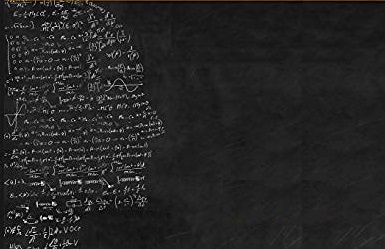Occasionally we come across an old book that is so relevant and timely it seems like it must have been written last year. Here I will try to tempt you to read one such book.
This year is the 80th anniversary of CS Lewis’ most prophetic book, The Abolition of Man. You can find it on “best books of the 20th Century” lists. Philosopher Peter Kreeft includes it in his “books to read to save Western Civilization.”
This short book consists of three chapters and an appendix, 101 pages before notes. In those three chapters, Lewis examines the problem with moral subjectivism and explores where it would take society. Where it will take society is to today. He described the last sixty years, eighty years ago.
Chapter 1 tells us how to build men without chests. It begins with a problem our society has been discussing lately: a theory, a philosophy meant for adults sneaks into a book for children. In this case, the theory is moral subjectivism, which is taught subtly, in an off-hand manner, creating a poison that will seep into the students and rear its head years later. What these authors have done is teach children that value judgments merely make statements about the speaker’s emotional state. This is where the chest comes in.
The head represents the intellect and is mere spirit. The belly represents our emotions, our appetites; this is mere animal. In the chest, the two come together so that the intellect can rule the passions, and “it is by this middle element that man is man”. How do we build men without chests? By undermining value judgments as merely emotions or opinions. In the past we understood that emotions did not replace reason but had to be trained to conform to it. This new view sees emotions as completely disconnected from reason and even in opposition to it. This leaves humans in one of two conditions, either reason disconnected from emotion or emotion disconnected from reason. Men without properly trained chests cannot control either the head or the belly. They end up being slaves to the belly, to their animal emotions. In this way “we make men without chests and expect of them virtue and enterprise. We laugh at honour and are shocked to find traitors in our midst.”
Chapter 2 shows that reason alone cannot take us anywhere. Some values must be applied. And some values must not be subjective, as even these authors depend on. There exists what Lewis calls the Tao, a fundamental moral knowledge that is common to all societies, “the sole source of all value judgements.” People who criticize morality must do so from within the Tao: “There has never been, and never will be, a radically new judgement of value in the history of the world. What purport to be new systems ... all consist of fragments from the Tao itself, arbitrarily wrenched from their context in the whole and then swollen to madness in their isolation.” When we criticize a society’s morals, we must do it from within the Tao — saying “this principle has not been taken far enough” — not from without. Unfortunately, when modern people see this, they are more likely to reject all morality than their subjectivism because they have come to believe that morality is a product of human nature. Their goal is to rule nature, and they see this as one more aspect of nature to rule over.
Chapter 3 gets prophetic. “Man’s conquest of Nature”, Lewis says, really boils down to the power of a few men over the rest. Some have criticized this chapter as being “anti-science.” It is not at all anti-science. Lewis is anti the way we do science and what we do with it. The same science that gave us a cure for polio gave us deadlier war, more effective propaganda, and eugenics. Knowledge is power, and science frequently gives the powerful more means to control the masses. Lewis would not be at all surprised by the rise of the Social Credit System. But, he insists, there are ways to do science without putting nature — and other humans — under our heels.
And he describes how things will go if they do not improve. They did not improve, and what he did 80 years ago was describe how Western society began to change in the 1960s and how it has proceeded to sink further and further over the last 60 years. Reading this will make you want to double check the copyright date.
He says men will choose an artificial Tao they want to produce in the human race. They will shape mankind according to their own animal desires. The common man will be affected far more than the power-brokers. Eventually the products of this will not have the vocabulary to contradict it nor the memory of what once was. Man’s conquest of nature will prove to be nature’s conquest of man, “the abolition of man.”
Carl Trueman wrote about the history, the long road that brought us to where we are now. Lewis describes the last few steps, but he wrote before they actually happened. Sadly, no one took his advice and cut this off at the knees. Today the question is, “what now?” Is it possible to turn the clock back? Can we undo the damage? Can we at least insulate our children from the worst of it?
This book has an intimidating reputation, but I found it to be typical Lewis: easy to read, easy to understand, so much to digest. Many people will be discussing The Abolition of Man this year. I urge you to read it and join that conversation.

No comments:
Post a Comment